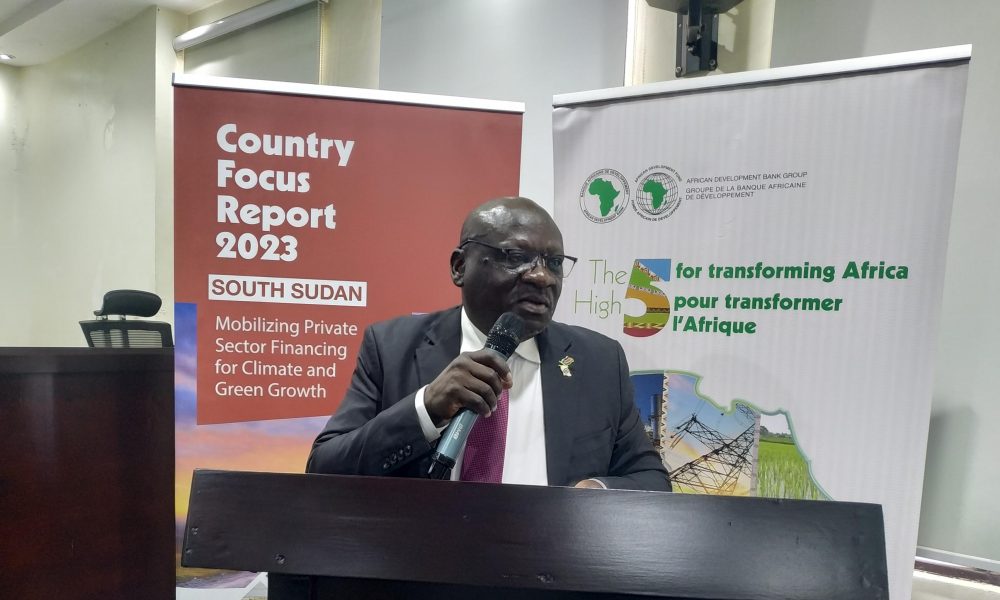By Charles K. Mark
African Development Bank (AfDB) yesterday launched the Country Focus Report (CFR) 2023 for South Sudan, with a focus on mobilizing private sector financing and green growth.
The report explores the scope for harnessing natural capital to finance adaptation to promote green growth.
Speaking during the launch, the AfDB country manager, Themba Bhebhe, said the report aims to replicate at the country level the analyses carried out at the continental level in the African Development Bank’s main African Economic Outlook (AEO) report for 2023.
“This report showcases the African Development Bank’s assessment of the country’s recent economic performances, medium-term projections, and outlook, looking at constraints and opportunities, private sector financing, climate change, and green growth,” said Bhebhe.
He stated that the report indicates that the South Sudan green growth index remains relatively stable, averaging 48.2 out of 100 between 2011 and 2021, increasing from 47.9 in 2011 to 48.6 in 2021.
According to the government’s National Development Plan, South Sudan’s financing needs for climate change and reforms are estimated at about $102 billion over the period 2020–2022.
AfDB thinks actions should be taken to leverage the opportunities for private sector investment to adapt and mitigate climate change while reducing the barriers to private sector investment.
“This will involve the capability to make innovative private sector financing mechanisms for growth and climate, such as green finance and natural capital accounting,” the AfDB Country Manager lamented.
The Undersecretary for Planning in the National Ministry of Finance and Economic Planning, Benjamin Ayal Koyongwa underscored the need for adequate information through such documents.
He said some of the decisions they make as leaders of the nation will negatively impact the people of South Sudan.
Mr. Ayal highlighted that if the environment and other natural resources, like wetlands, are not protected and if the focus is only placed on narrow things, then the country is in limbo.
“If I have a problem crossing the river, I don’t have to hire trucks to block the water from flowing because I want to walk free,” he said. “I would rather construct the bridge and allow nature to take its course.”
“We need people who can tell us what we are doing is not right. Even if it’s going to cost them something, it’s important,” he added.
The undersecretary wondered how private sector financing for climate defects could be approached, noting that there must be a better way to manage climate change.
“In my rural home, we flood every year, right? Nobody talks about it. But what we agreed to as a community was to avoid the lowland settlement. We don’t ask for Egyptians to come and dredge the river,” Ayal cited.
He said, “What we do is move settlement away from the lowland so that the flood does not affect people.”
Undersecretary Ayal reiterated that there is a need to look at a better way of handling situations that affect South Sudanese instead of employing emotional approaches.




